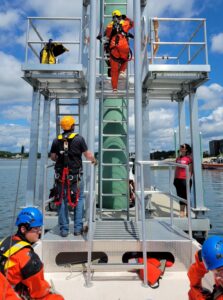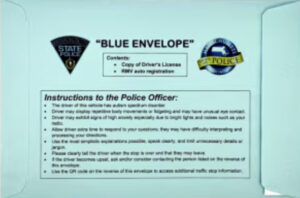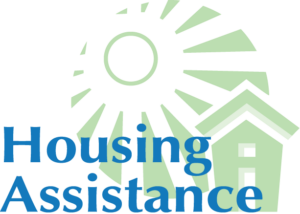FRAMINGHAM, MA – In an effort to enhance awareness of the importance of emergency preparedness for individuals and families, Governor Charlie Baker has proclaimed September to be ‘Emergency Preparedness Month’ in the Commonwealth. Working with the Executive Office of Public Safety and Security (EOPSS) and the Department of Public Health (DPH), the Massachusetts Emergency Management Agency (MEMA) will promote public preparedness and safety throughout the month. These efforts are in conjunction with a nationwide effort to encourage all Americans to take simple steps to better prepare themselves and their families for emergencies at home, work and school.
“During the month of September, individuals and families are urged to better prepare themselves and their communities for disasters and other types of emergencies. Before the next disaster strikes, learn how to receive emergency alerts and critical information, take time to build emergency plans and kits, and get involved in community efforts to build resilience,” said MEMA Director Kurt Schwartz. “Preparedness reduces casualties, property damage and the economic impact of disasters, and speeds up recovery.”
To help the public better prepare themselves and their families, MEMA will promote four preparedness messages during Emergency Preparedness Month: 1) Be Informed, 2) Develop a Plan, 3) Build a Kit, and 4) Get Involved. Throughout the month, MEMA will encourage all residents of the Commonwealth to: learn the hazards and risks that may affect their communities; find out how to receive emergency warnings and critical information from local and state emergency managers and public safety officials; prepare comprehensive family emergency plans; build emergency kits that are stocked with supplies that will help sustain individuals and families during disasters; and become involved in community efforts to build resilience.
Governor Baker’s Proclamation states, “Emergency preparedness is the responsibility of every resident of the Commonwealth, and families and individuals are urged to make preparedness a priority…” All residents of the Commonwealth are encouraged to participate in citizen preparedness activities and to enhance preparedness by using the resources at http://www.mass.gov/mema.
Throughout Emergency Preparedness Month, the Massachusetts Emergency Management Agency (MEMA) is promoting the importance of individual, family and community preparedness. An important component of emergency preparedness is ‘Being Informed’. “It is critical for residents to be informed about the threats and hazards that may impact them, their families, and their community, know how to receive emergency alerts and information during disasters, and be familiar with their community’s emergency plans,” said MEMA Director Kurt Schwartz. “These are important steps in preparing your family and building resilience.”
Massachusetts is susceptible to many natural hazards, including floods, hurricanes and tropical storms, severe winter weather, tornadoes, coastal storms, thunderstorms, earthquakes, lightning, extreme temperatures, and many others. In addition, man-made disasters can also occur, including hazardous materials incidents, nuclear power plant incidents, power outages, transportation accidents, water supply problems, terrorism and others. Being aware of, and understanding the different types of incidents that can occur is a critical part of being prepared for emergencies.
Receiving timely public safety information allows you to take necessary protective actions to keep you and your family safe. Residents should have multiple ways to receive emergency alerts and information from public officials before and during emergencies. Some hazards such as hurricanes and blizzards have advance notice, while others such as tornados and earthquakes have little or no notice. Residents should proactively identify, and when necessary, subscribe to several information sources. This will ensure that you receive timely information, especially since some information sources may be disrupted during an emergency. For example, power outages may cause disruptions to television, radio and internet systems. Some of the primary ways to get information during an emergency include:
- Local notification systems such as “Reverse 9-1-1” or “Code Red.” Check with local public safety officials about which systems are used in your community and whether registration is required.
- Commercial media (TV and radio).
- MEMA’s Massachusetts Alerts smartphone app.
- MEMA’s Twitter or Facebook accounts and the social media accounts of public safety agencies in your community.
- MEMA’s website: http://www.mass.gov/mema/ and your local community government website.
- The Emergency Alert System (EAS) which delivers emergency information via radio and television.
- Wireless Emergency Alerts.
- National Oceanic and Atmospheric Administration (NOAA) Weather Radio.
- U.S. Coast Guard Marine Broadcast.
- Outdoor Electronic Billboards.
- Teletypewriters (TTY) used by people with hearing impairments.
- Massachusetts 2-1-1 (for non-emergency assistance). 2-1-1 is the Commonwealth’s primary call center during emergencies; the center provides information on emergency resources such as shelter locations.
You should also be informed about your community’s emergency plans, including evacuation routes and shelter locations. If you live or work in a coastal community, you should learn whether you are in a designated hurricane evacuation zone. To learn whether your home, business, or school is in a hurricane evacuation zone, use the interactive “Know Your Zone” map on MEMA’s website.
Massachusetts residents are encouraged to visit www.mass.gov/mema/ready to obtain more information about how to prepare for emergencies and disasters.
Media release furnished by Mass Emergency Management Agency























Speak Your Mind